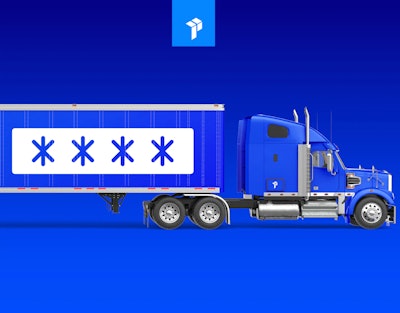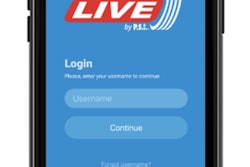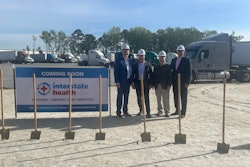
The next wave of technology has crashed over us with GPT – or generative pre-trained transformer – and Anthony Sutardja says it’s the future of freight.
“It's going to drive huge productivity improvements across the workforce, help everyone become a little more supercharged, even act a little superhuman,” said Sutardja, CEO of Parade, a capacity management system for digital freight brokers.
 Parade launches GPT demo.Parade
Parade launches GPT demo.Parade
“There are a ton of use cases across various different industries where we can see this being useful. For example, marketing, sales, engineering, etc., and our team specifically uses ChatGPT for our own productivity every single day,” Wu said. “Similar to a search engine, it just makes information much more readily available but also in a more conversational manner. You can have a whole conversation with ChatGPT; it remembers the context of that conversation, and as you engage with it, it really answers you similar to how a human would.”
Sutardja said that’s important in a relationship-driven business such as freight brokerage.
Parade has built tools for its broker customers to enable them to better manage carrier relationships at scale. The platform drives efficiency by integrating with brokers’ entire freight stacks (TMS, load boards, etc.) and parsing through emails, texts and phone calls using AI to funnel the essential data to the broker.
For example, if a broker gets an email from a trucker offering a truck from Dallas to Orlando, the Parade system reads that email as a human would using a large language model the same way GPT does and pulls the information needed into the Parade system for the broker reps to use.
“What we have today is not perfect,” Wu said. “It takes three to five minutes to process an email, and because we're not 100% accurate with our current model, we do have a manual QA step. So 75% of emails today go through manual QA, and that also takes time – 15 to 45 minutes. After this whole process, now we have this capacity available. We can match on it, we can engage with carriers based off that capacity. That's how the feature works today, and through our extensive testing, we estimate the accuracy is around 92%.”
He said Parade has been playing around with GPT and has seen quite a big improvement. With the company’s new GPT-based model, Parade can process emails within 30 seconds, and the accuracy has allowed the company to bypass the manual QA step. He said, by initial estimate, accuracy with GPT is much higher at around 99.3%.
“This improved accuracy in real time processing means that not only will our customers benefit from a more accurate email reading, but also a new use case where we can start applying this to different email workflows,” Sutardja said. “An example of this is … some of the load boards are pushing towards digital bidding and digital booking, which is awesome, but you still get a ton of inbound over emails.
“We looked at a smaller customer of ours, and they're getting three to five emails every single minute from DAT. That is a huge influx of volume. Very difficult to process. Nine out of 10 of those probably didn't work out as an option, but that's still really valuable data,” he added. “So what we're able to do is leverage the new version of our email extraction service to turn all of the load board email traffic into actionable capacity data insights.”
Parade can extract key information that can then be used for querying your TMS while also understanding what kind of intent was behind the query.
It works with phone calls too. Sutardja said Parade’s phone engine powered by GPT had 100% accuracy. The algorithms and transcription service was able to process one call in 3.2 seconds and pull the necessary data into the Parade system, so the data that lives in a broker’s phone calls can make its way into Parade’s dynamic pricing engine that leverages capacity data to help a broker team make more informed real-time pricing decisions based on the market.
Sutardja said GPT helps accelerate a freight brokerage’s proprietary data and allows Parade to gather more real-time information than ever before.
And he said it’s important to note that this technology is different than before.
“I think a lot of you all might have asked yourselves when adopting a new technology … how are you going to actually roll this out. How are we going to drive more digital adoption? Here's another tool and more processes, more buttons to press; GPT changes this. This enables existing workflows that are already offline to be digitized,” Sutardja said. “This is how this new AI technology, we think, will enable all of us to work faster, more productive, and really enable our customers to make use of their existing processes and their own data. And we're really just scratching the surface here.”











